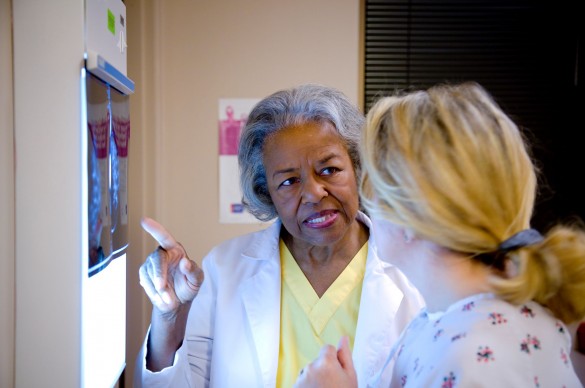Great news last week out of Massachusetts where Governor Charlie Baker and the state legislature enacted new legislation to prevent youth under the age of 18 from using indoor tanning devices. ACS CAN staff and volunteers have been working hard to protect Massachusetts teens from the harms of indoor tanning and we're hoping that this early legislative win in 2016 sets the tone for other states to do the same. Across the country, at least six other states have an opportunity to pass indoor tanning restrictions this year. Just recently, Arizona legislators introduced new legislation that has the potential be as strong as the new Massachusetts law.
Young people under the age of 18 are at a particularly high risk for the damages associated with UV radiation and exposure, since their skin is not fully developed and their skin cells are dividing and changing more rapidly than those of adults. In fact, indoor tanning use before the age of 35 increases melanoma risk by 59 percent.
Skin cancer is the most common of all cancer types. According to one estimate, about 3.5 million basal and squamous cell skin cancers are diagnosed each year occurring in about 2.2 million Americans as some people have more than one. This year the American Cancer Society estimates that there will be 76,380 newly diagnosed cases of melanoma in the United States, the most deadly type of skin cancer. Nearly all skin cancers could be prevented by limiting unprotected exposure to ultraviolet (UV) rays from the sun. When they do occur, most skin cancers can be treated successfully if detected early even melanoma.
As states continue to work to enact tanning restrictions, ACS CAN is also calling on the Food and Drug Administration (FDA) to finalize two proposed regulations released in December 2015 that would prohibit tanning device use by minors under 18, strengthen the warning labels noting the danger of sun lamps and require those who tan to sign a form acknowledging the dangers of the devices every six months. The FDA should move quickly to enact these regulations, but in the meantime, we'll continue to work state by state to protect youth from the harms of indoor tanning.
Currently, 11 states and the District of Columbia prohibit the use of tanning devices for minors with no exemptions and 10 other states have a state law limiting tanning but fall short of a total restriction.
Congratulations to Massachusetts for the victory. We will continue to work both on the federal and state levels to prohibit tanning for all minors because we know that doing so will protect youth from skin cancer and ultimately save move lives.

